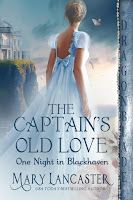I felt the urge to read a classic, and chose F. Scott Fitzgerald’s The Beautiful and the Damned. What a gorgeous and depressing book.
Of course, the prose is lush. Oddly, the normal narrative is interrupted from time to time by scenes written as though for a screenplay. And that works, because the characters are acting their way through life. They are the shallowest protagonists to ever compel me to read over 120,000 words spanning just under a decade of their lives. They are not likeable. They aren’t even pitiable. And yet, I couldn’t walk away from the train wreck of their lives.
Anthony Patch is a young man, recently graduated from Yale, with no ambition and no direction. He inherited from his mother enough money to live on, just enough to maintain an indolent lifestyle. When he falls into debt, he sells off his principal, without much awareness of the fact that his income is thus going to fall. He isn’t much concerned, at any rate, because he has a fabulously wealthy grandfather and considers himself the man’s only heir. Never mind that he can scarcely bear the old man’s company. Grandfather Patch made his fortune in the usual unscrupulous ways, then settled into a life of pious judgmentalism. The grandfather doesn’t like Anthony any more than Anthony likes him. The rare times Anthony visits his sole remaining relative, he is always asked what his plans are. When is he going to work?
Anthony drifts along in his semi-sleepwalking state, accompanied by his best friend Maury, who also doesn’t have to earn a living. They drink a lot and have conversations that are as witty and deep as any drunk college kids. They have a third friend, Dick, who wants to be a writer. They are scornful of Dick, who talks of nothing but his work-in-progress, both because of his specific ambition, writing a novel, but also for having any ambition at all.
And then along comes Dick’s cousin, Gloria Gilbert. She is beautiful. She’s also self-centered, selfish, and a siren. Every man she meets falls for her. Her beauty and her charisma stem from her youth and her indifference. She needs to be the center of attention, and she is.
Anthony falls hard for her. And then, she falls hard for Anthony. They then proceed to bring out the worst in each other. Partying hard. Drinking far too much. Living beyond their means. Growing bored with one another. Waiting for Anthony’s grandfather to die.
The timeline carries them through WWI, which almost touches them, but not quite. Their ultimate downfall is always on the horizon, but the pace of their deterioration picks up as Anthony descends farther and farther into alcoholism. It’s brutal.
The novel is not as tightly plotted as The Great Gatsby. And it is far less emotionally compelling than Tender is the Night, my favorite Fitzgerald work thus far. But after reading it, I’m more determined to work my way through all of Fitzgerald’s novels.




















